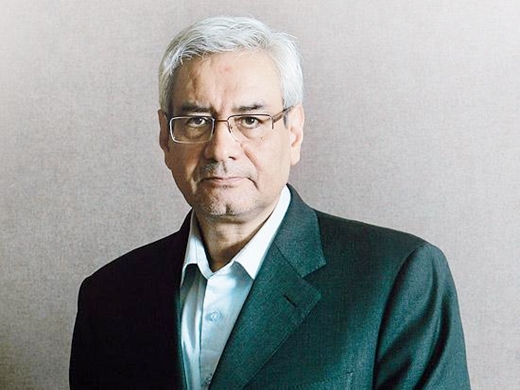Ebrahim Asgharzadeh, a reformist political activist, has said that the country’s foreign policy machine is expected to try to reclaim Iran’s right in the legal regime of the Caspian Sea.
Asgharzadeh said this in an interview with Etemaad daily on July 25 and critically analyzed the foreign policy of former President Ahmadinejad which he argued earned Iran nothing but crippling sanctions, anti-Iran resolutions and a struggling economy. The following is the translation of part of his remarks in the interview:
The fact of the matter is that the [Former President] Ahmadinejad had been told that Iran’s nuclear case would not be referred to the UN Security Council. The negligence and remissness Iran’s diplomacy machine displayed in dealing with the nuclear case was blamed on such misinformation. After six [UN] resolutions were issued against Iran between 2006 and 2011, the Ahmadinejad administration buried its head in the sand and rejected them [the sanctions which were imposed on the country as a result of those resolutions] as “worthless paper”.
Regrettably, this attitude caused Iran to miss out on numerous opportunities. Iran had to offer more concessions to Russia so that no more pressures would be piled on the country at the UN Security Council.
One of the gravest mistakes of the diplomacy apparatus under Ahmadinejad was its too much attention to the East, something which ran counter to the core principle of the Islamic Revolution: Neither East, Nor West. By showing tendency toward the East, Ahmadinejad was trying to create a strategic alliance with Russia, China and India. Bygone are the days during which the Russians played the Iran card.
Neither of these countries welcomed such an approach [Iran pursued back then]; nor did they agree to help build a strategic alliance with Iran at the expense of their strategic ties with the West. The only result of such an approach was the inflow of unsellable, shoddy goods made by China, Russia and India to the Iranian markets.
In other words, Ahmadinejad’s East-leaning approach earned Iran nothing more than six [UN] resolutions, paralyzing sanctions and more isolation in the international community. These are the miscalculations Ahmadinejad’s diplomacy machine made during his eight years in office.
In light of the newfound self-confidence of our diplomacy machine and its thorough knowledge about international law, I hope that it can cement Iran’s diplomatic footing in other areas and reclaim the country’s rights in the fields which are equally as important as – if not more important than – the right to nuclear technology. The most important such issue is the Caspian Legal Regime.
Iran is a land for each square foot of which someone has made the ultimate sacrifice, but the Russians have – through bilateral deals with Kazakhstan and Azerbaijan – decreased Iran’s share of the Caspian Sea to less than 10 percent.
Inaction in the face of Russia, following the nuclear deal, won’t be acceptable at all. Iran has paid a dear price over the years because of the approach adopted by Ahmadinejad. Since conditions have changed and we are on equal footing with the Europeans, from now on, we can play the Russian card. Gone are the times the Russians could play the Iran card. Form this point onward, we can play the Russia card in dealing with the West.
